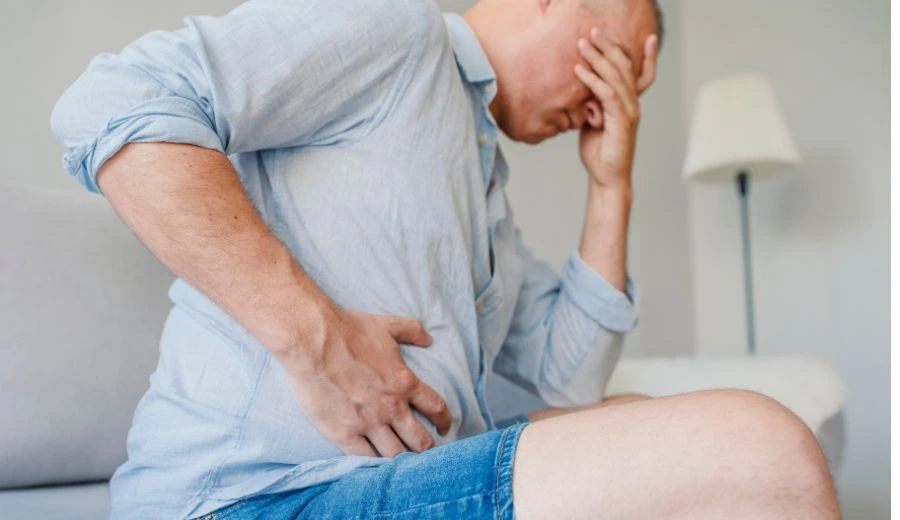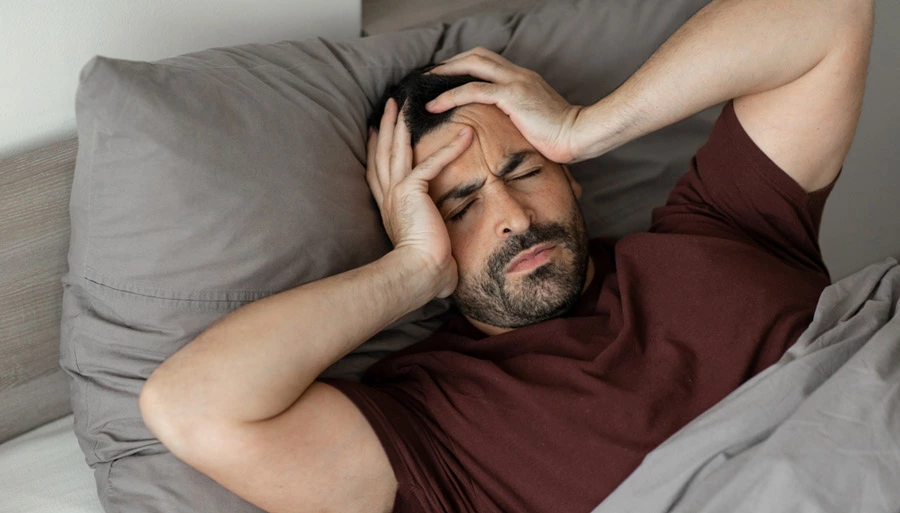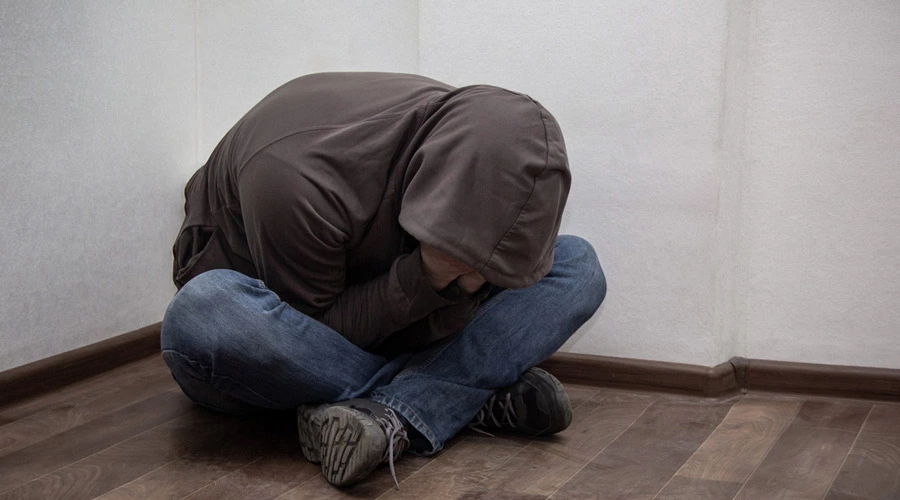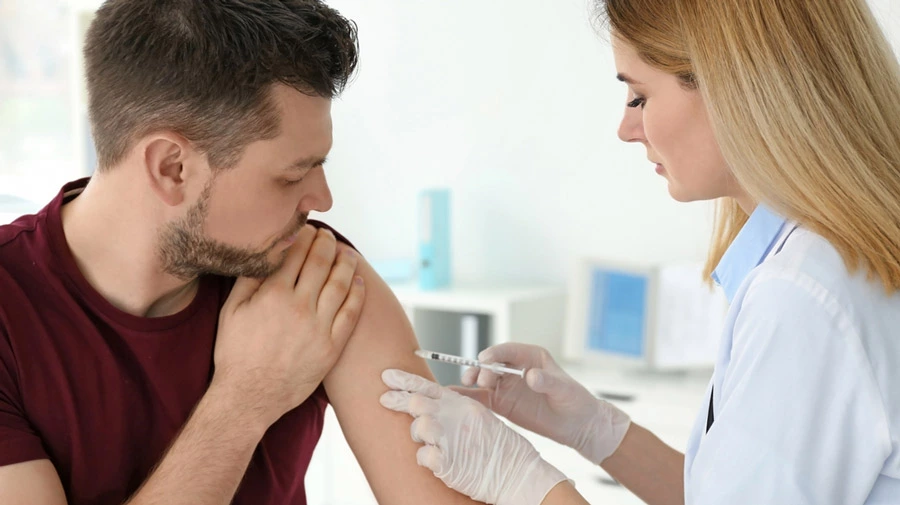Is Nausea During Detox Normal?
For many people, nausea is a common symptom during detox. It is caused by the body’s reaction to the withdrawal of the drug or alcohol. When you stop using drugs or alcohol, your body goes through a period of adjustment, often causing a variety of symptoms, such as nausea, vomiting, sweating, anxiety, and insomnia.
Nausea during detox can be mild or severe. It can come and go, or it can be constant. In some cases, it can be so severe that it makes it difficult to eat or drink. For many people, their withdrawal nausea can be enough to make them go back to their drug or alcohol abuse, especially if this is accompanied by other painful symptoms.
If you or a loved one have gone through the agony of withdrawal alone, you know how difficult it can be to keep clean and sober over those first days and weeks.
Because of how severe the substance withdrawal process can be, seeking out drug and alcohol detoxification services will be your best chance for safely achieving sobriety. At South Shores Detox and Recovery, we offer the support you need to successfully overcome your substance abuse.
What is Withdrawal From Addiction?
When someone has been using drugs or alcohol for a long time, their body will end up forming a dependence on these substances. Once dependent, suddenly stopping or reducing this use can send the body into shock, as it is no longer able to function without the substance.
This can cause them to develop unpleasant symptoms as their body re-adjusts to no longer having access to an abused substance; including, of course, vomiting symptoms. Unfortunately, some of these withdrawal effects can be very dangerous if not managed properly.
For those who are recovering from addiction, withdrawal symptoms are often the leading cause of rates of relapse and medical complications during the recovery process. This is why it is so important to seek professional help when attempting to overcome substance abuse.
What are the Most Common Withdrawal Symptoms?
If you are recovering from substance addiction, it is normal to want to know what you should expect during the withdrawal period. Of course, what symptoms you will experience will vary based on the specific substance you are withdrawing from.
With that being said, some of the most common withdrawal symptoms that may occur during the addiction recovery process include:
- Physical symptoms: These can include sweating, tremors, nausea, vomiting, diarrhea, muscle cramps, headaches, and difficulty sleeping.
- Emotional symptoms: These can include anxiety, depression, irritability, mood swings, and fatigue.
- Cognitive symptoms: These can include difficulty concentrating, making decisions, and thinking clearly.
- Behavioral symptoms: These can include drug cravings, restlessness, and agitation.
What are the Most Difficult Substances to Withdrawal From?
It is important to note that the difficulty of withdrawal from a substance can vary from person to person, depending on a number of factors, such as the length of time the person has been using the substance, the amount of the substance they are using, and their overall health
With that being said, the following substances are considered to be some of the most difficult to withdraw from:
- Opioids and illicit drugs such as heroin, morphine, and fentanyl are highly addictive and can cause severe withdrawal symptoms and can even be life-threatening.
- Alcohol withdrawal can also be life-threatening, producing serious medical conditions such as seizures as DTs that can lead to death if not treated.
- Withdrawal from benzodiazepines can cause both physical symptoms and serious psychological side effects that can be hard to manage alone.
- Stimulants like methamphetamine and cocaine can cause intense cravings and severe withdrawal symptoms, with psychological effects that can be difficult to endure.
If you are struggling with addiction, it is important to seek professional help for withdrawal. With the right support, you can safely and successfully overcome addiction.
At South Shores Detox and Recovery, we offer the structure and care you need to safely recover from your addiction.
Alcohol Withdrawal Symptoms
Alcohol withdrawal syndrome (AWS) is a group of symptoms that can occur when someone who drinks heavily suddenly decides to stop drinking alcohol. The symptoms can range from mild to severe and can be life-threatening in some cases.
The severity of AWS symptoms depends on how much alcohol a person has been drinking and for how long. For example, those who have been drinking heavily for a long time are more likely to experience severe withdrawal symptoms.
When Does Alcohol Withdrawal Begin?
Alcohol withdrawal can start as early as 6 hours after a person’s last drink, and will usually peak within 24 to 72 hours, before gradually improving over the next few days or weeks. Of course, complications are possible, and this timeline will vary depending on the person.
Some of the most common symptoms of alcohol withdrawal include:
- Tremors
- Increased sensitivity to noise and light
- Anxiety and poor concentration
- Nausea and vomiting
- Headache
- Sweating
- Insomnia
- Hallucinations
- Seizures
- Delirium tremens (DTs)
DTs is a severe alcohol withdrawal condition that can be life-threatening. Symptoms of DTs include severe confusion, hallucinations, rapid heart rate, high blood pressure, fever, sweating, agitation, and restlessness.
If you are experiencing any of the symptoms of AWS, it is important to seek medical attention immediately. AWS can be a serious condition, but South Shores Detox and Recovery can help prevent complications during your treatment and make sure you are able to safely recover.
Opioid Withdrawal Symptoms
Opioid withdrawal occurs when a person who is physically dependent on opioids suddenly stops using them. The symptoms of opioid withdrawal can be mild to severe and can range from physical to psychological.
Some of the most common withdrawal symptoms associated with opioid addiction include:
- Nausea and vomiting
- Diarrhea
- Excessive sweating
- Chills
- Muscle aches and pains
- Tremors
- Goosebumps
- Increased heart rate
- High blood pressure
- Insomnia
You may also experience several psychological symptoms, such as anxiety, irritability, depression, cravings, insomnia, and even hallucinations or suicidal thoughts. Opioid withdrawal can be highly unpredictable, so it is best to seek professional help if you are struggling with this addiction.
Benzodiazepine Withdrawal Symptoms
Benzodiazepine withdrawal is a serious condition that can occur when someone stops taking benzodiazepines after having used them for a long time. The symptoms of benzodiazepine withdrawal can be very unpleasant and even dangerous to handle alone.
The symptoms of benzodiazepine withdrawal can vary depending on the person, the dose of benzodiazepines they were taking, and how long they were taking them. However, some common symptoms include:
- Anxiety
- Panic attacks
- Insomnia
- Muscle tension
- Tremors
- Sweating
- Nausea and vomiting
- Diarrhea
- Headaches
- Dizziness
- Chills and hot flashes
- Difficulty concentrating
- Irritability
- Depression
- Seizures
In severe cases, benzodiazepine withdrawal can be fatal. If you are experiencing any of the symptoms of benzodiazepine withdrawal, you can reach out to our facility to learn about how you can start getting the support you need today.
The Best Way to Manage Severe Withdrawal Symptoms
Addiction withdrawal is a serious medical condition with often severe symptoms. You may not only experience vomiting during this time, but dehydration, seizures, and even death. In many cases, severe vomiting can even cause serious damage to the stomach lining and digestive system.
Unfortunately, most people experience much more than an upset stomach during withdrawal, and you will likely be no exception. In order to safely manage your detox nausea and other symptoms, it is important to seek professional medical help.
Why Medical Detox is Necessary for Managing Withdrawal
Undergoing a medical detoxification process can not only help make you more comfortable during your withdrawal period, but it can also provide life-saving support should you experience more than just a few mild symptoms.
It cannot be emphasized enough that many symptoms of withdrawal can be dangerous and even fatal without proper medical care. This is especially true for those who have an underlying condition, whether this be mental or medical.
Medical detox services can also help to prevent relapse. When people go through withdrawal on their own, they are more likely to relapse back to using drugs or alcohol due to the discomfort caused by their symptoms.
Here is a sample listing of the most common substances clients at South Shores seek detox services for:
- Alcohol Detox
- Benzodiazepine Detox
- Cocaine Detox
- Crack Detox
- Fentanyl Detox
- Meth Detox
- Methadone Detox
- Percocet Detox
- Suboxone Detox
- among others
The Importance of Supervised Support
Medically-supervised detox services can help to prevent relapse by providing medications and support to help you through the withdrawal process by providing a safe and supportive environment for your recovery.
While it can feel uncomfortable or make you feel weak to seek support during this time, making this decision is one of the best things you can do for your sobriety. Professional drug detox services can provide you with the medical supervision, structure, and emotional support you need to establish a solid foundation for achieving long-term recovery.
What to Expect During the Detox and Treatment Process
During the detox process, you will be provided with regular support and supervision from a doctor or team of licensed medical professionals. This can include vital support, dietary counseling, medication-assisted treatment, and a handful of other services.
Once you have completed detox, you will begin treatment. Treatment typically involves a combination of rehabilitation, medication, therapies and counseling. The goal of treatment is to help you understand your addiction and learn how to manage it.
Therapy can help you explore your thoughts, feelings, and behaviors related to your addiction, while counseling and group sessions allow you to connect with other people who are struggling with addiction and learn from their experiences.
The length of treatment will vary depending on your individual needs. However, most people need at least 30 days of treatment, which can extend up to several months if deemed necessary for their recovery.
It is important to keep in mind that recovery is a lifelong process. Once you have completed treatment, you will need to continue to work on your sobriety. This may involve attending support groups, participating in therapy, and making lifestyle changes.
Recovery is not always easy, but it is possible. With hard work, dedication, and support from South Shores Detox and Recovery, you can overcome your addiction and live a healthy and fulfilling life.
Get Started at South Shores Detox and Recovery Today
If you or a loved one is struggling with addiction and are at risk of experiencing a difficult withdrawal process, know that you are not alone and help is available. At South Shores Detox and Recovery, we offer a wide variety of treatment options to make sure all of your recovery needs are being met.
From detox to aftercare, we support our clients on their road to sobriety every step of the way. If you are ready to start your recovery or want to learn more about how our program can be a great fit for you, reach out to us today!
FAQs on Detox and Nausea
How Can I Avoid Nausea During Detox?
If you simply feel nauseous during this time, it can help to take some pepto bismol, drink plenty of water, and take on what is known as a “brat diet,” which consists mostly of bland foods such as rice, toast, and soup broths.
It is important to keep in mind that nausea experienced during withdrawal is not like a simple case of food poisoning. This symptom may not clear up within a day or two, and can persist for up to several weeks depending on your situation. Seeking professional treatment can help you navigate your recovery safely and comfortably.
Can I Detox By Myself?
While it may seem easier to attempt riding out the withdrawal period on your own, it is never recommended to attempt detoxing by yourself due to the dangerous symptoms and cravings that can occur during this time.
Professional alcohol and drug detox programs like ours can help make sure you are staying safe during the recovery process and are being provided with the tools and resources you need to achieve long-term sobriety.






